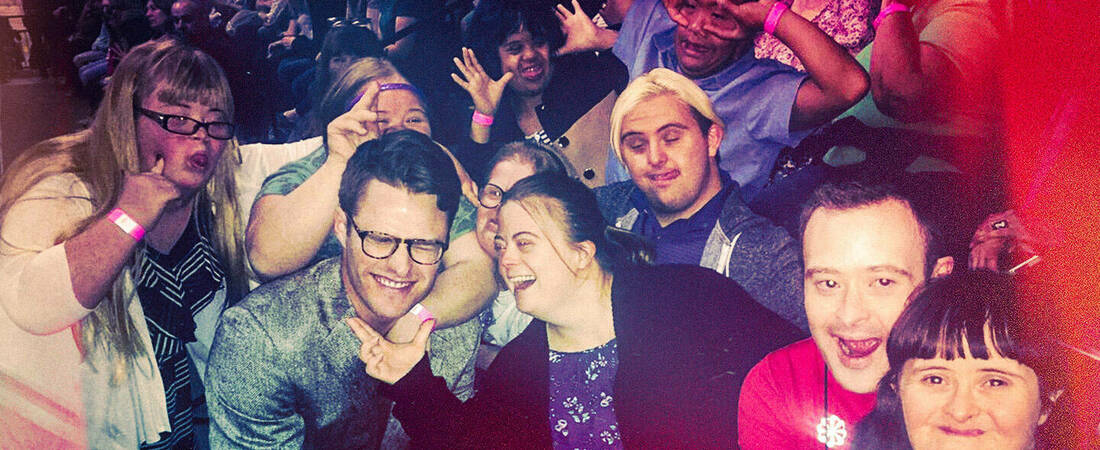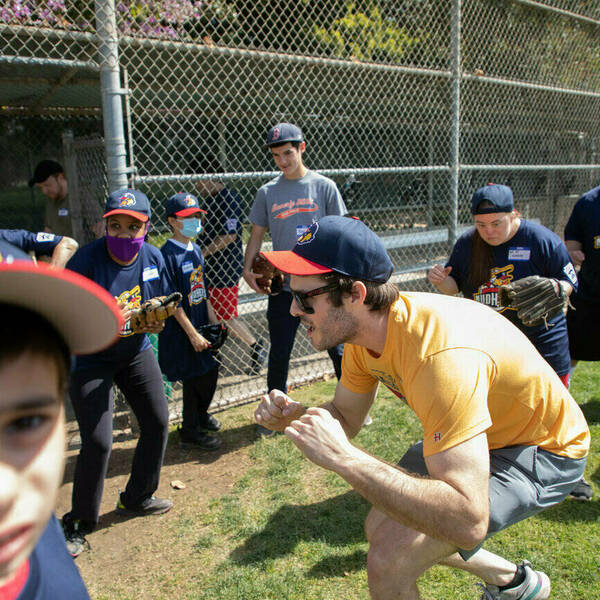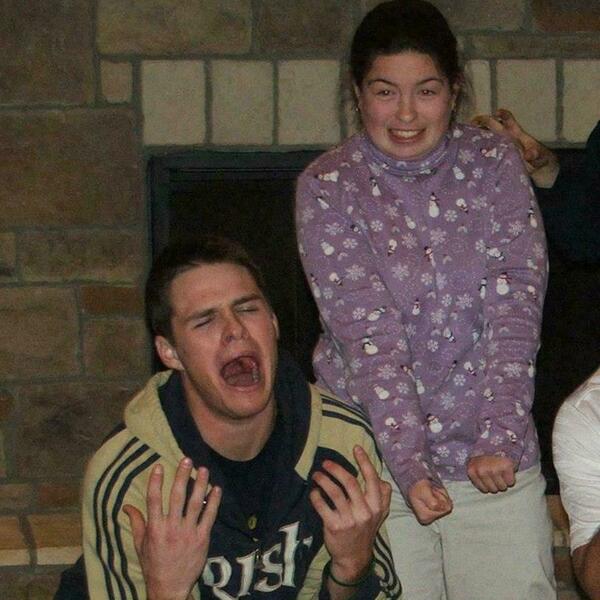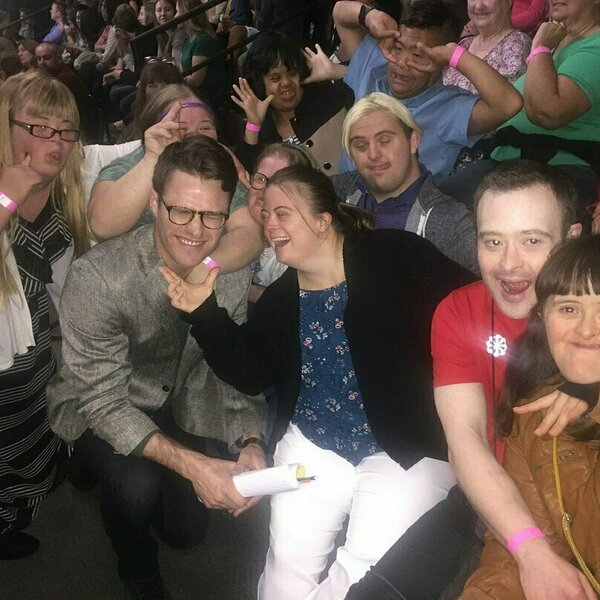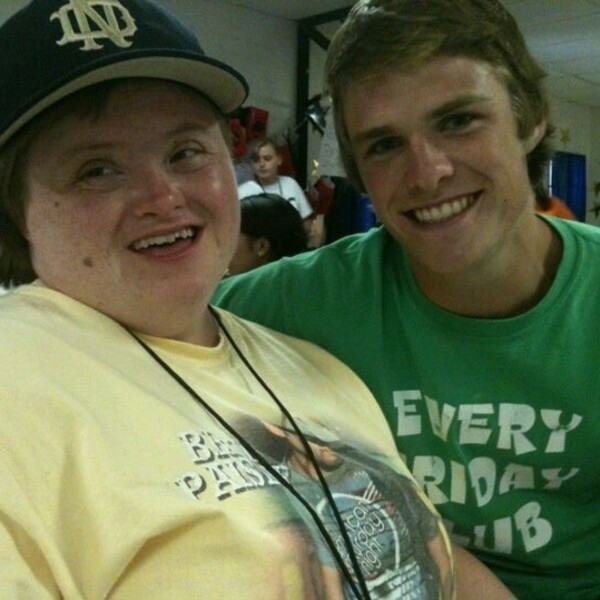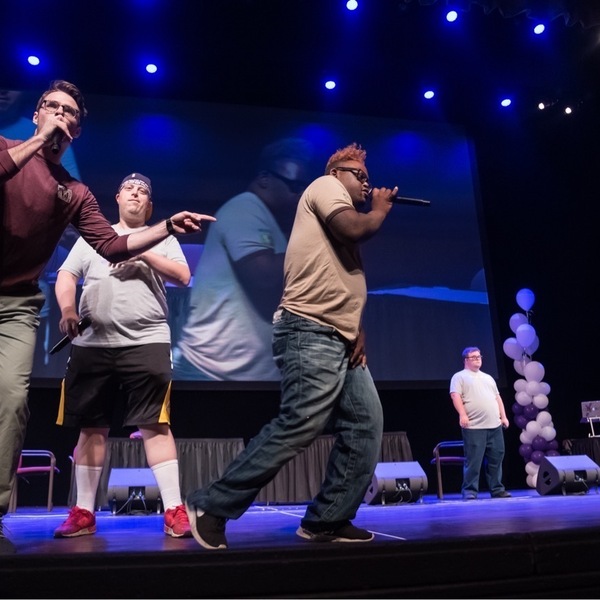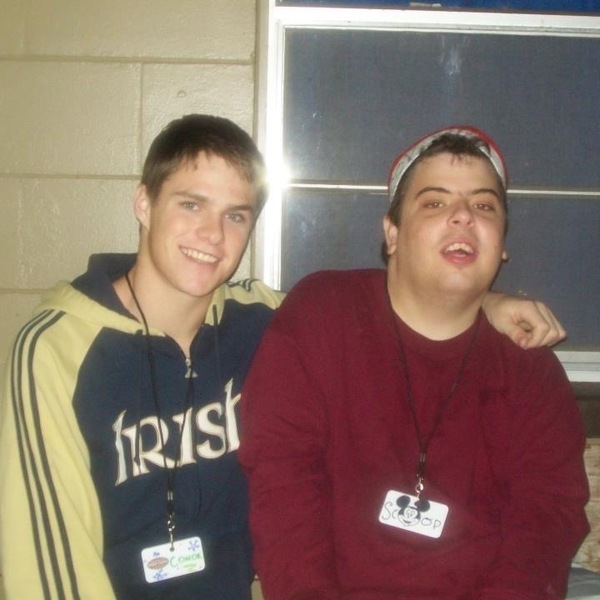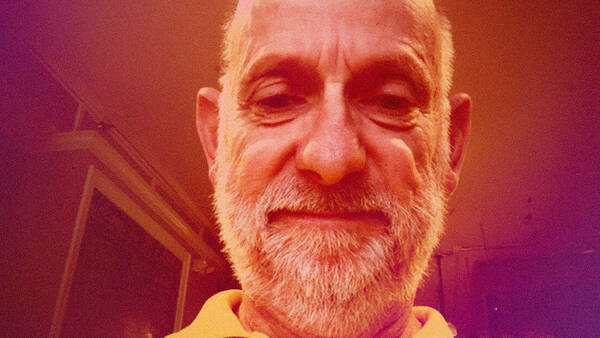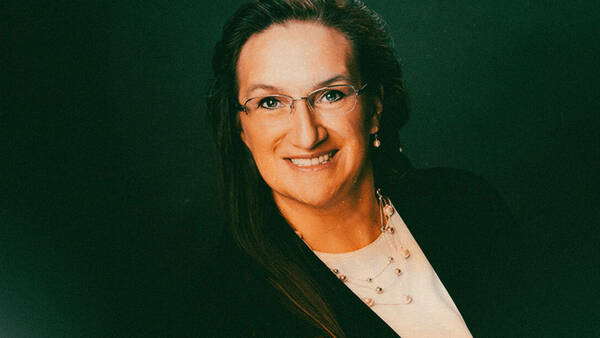Ever since he was a high school student in Jacksonville, Florida, Conor Hanney ’14 has had two passions: television production and championing individuals with cognitive disabilities.
Since graduating from Notre Dame with degrees in Film, Television, and Theatre (FTT) and finance and earning honors for his thesis on writing TV for the family demographic, Hanney has built a rewarding career and volunteer life that allows him to make big impacts in both areas.
During the day, he is a TV writer-songwriter who has written for Disney and Netflix comedies including the popular Julie and the Phantoms. At night, he plays at Darren Criss’ Hollywood piano bar Tramp Stamp Granny’s. But outside of work, Hanney runs a special needs baseball league in Beverly Hills, and writes musicals for actors with disabilities.
“I’m an economist when it comes to charity… as in, ‘To do the most good, find your comparative advantage and just do that,’” he said. “I’m no better at scooping soup than the next man, nor do I particularly enjoy it, but I really jive with this community, so I’ll keep doing that.”
Hanney first began volunteering with this community in high school as a counselor at Camp I Am Special, an accessible summer camp for children and adults with intellectual and developmental disabilities run by Catholic Charities in Jacksonville, where he’ll be returning to work this summer. The rights to his YA manuscript based on these camp experiences were bought pre-publication by Disney, where he was developing an adaptation for TV. Around the same time, he discovered his love for television production after Jaime Combs, who worked in local news, came to his school to start a broadcast news program.
“Within a couple years, she made us one of the top three student news programs in the country,” he said. “She got me Apple-certified in Final Cut Pro 7, a standard editing software at the time, which got me my first paid internship in college.”
As a Notre Dame student, Hanney did two summer internships in Los Angeles. In 2013, he interned with O’Malley Creadon Productions, a film and television production company run by Notre Dame alumnus Patrick Creadon ’89 and his wife, Christine O’Malley, that produced the 2018 Hesburgh documentary. The same summer, Notre Dame FTT professor Christine Becker helped Hanney get writers’ room experience on Disney XD’s Kickin’ It.
When school was in session, Hanney was a member of the Humor Artists improv comedy troupe. Some of his favorite shows to perform were short-form improv shows with residents at Hannah and Friends, a community for adults with disabilities founded by former Notre Dame football coach Charlie Weis ’78 and his wife, Maura.
The day after graduating from Notre Dame, Hanney moved to Los Angeles to work in the entertainment industry. There, he also began volunteering with the Born to Act Players, a theatre troupe in North Hollywood for children and adults with disabilities. Hanney led these actors in improv games, taught stage acting techniques while reading scenes from famous plays, accompanied their dancing on the piano, and produced a music video that got over 360k views.
He said he noticed a stark lack of cognitive disabilities representation in the theater world. This inspired him to write Best Buddies: The Hip Hop Musical to perform for 2,800 people at the Best Buddies International Leadership Conference. The production, which starred Born to Act actors, won awards at the Hollywood Fringe Festival in 2018 and was licensed by Princeton University.
“Almost all my actors had Down syndrome, and often a symptom of that is atonality — not being able to sing on tone,” Hanney said. “But they still have great rhythm and can keep tempo, so we leaned into rap, which doesn’t have a strict melodic structure that needs to be adhered to but could still be entertaining.”
Hanney also found that his actors with disabilities, though talented and entertaining, were having difficulties reading scripts at auditions that weren’t written for them. He said this happens because many disabled people have a “unique linguistic fingerprint.” When theater roles are not written with their singular voices in mind, it often “doesn’t read as believable” when they read most scripts.
“You have someone who may be cognitively [nine years old] — a third-, fourth-grade reading level — but they’ve also been on Earth for maybe 20, 30-plus years, so they have a ton of advanced, specific ‘million-dollar words’ they’ve picked up,” Hanney explained.
Keeping this in mind, Hanney works with actors and their families to write pre-casted roles specifically suited to them. He ghostwrites autobiographies on the side — with one such featured on the BBC’s Shark Tank analog Dragons’ Den — so he transposed his autobiography research model to his actors, interviewing with them for hours to get a sense of the actor’s vocabulary bank, speech patterns, and phraseology to compile their “personal dictionary” before writing a script. Once the actors read the roles specifically written for them through this “adaptive writing process,” he said they memorize the script more quickly than his neurotypical actors. He is currently workshopping a new play about disabilities conservatorship called Coconut starring Jamie Brewer, the first person with Down syndrome to win a Drama Desk Award.
Hanney also founded and directed an improv troupe at Second City Hollywood — and now, The Pack Theater — for actors with Down syndrome and seeks to increase disabled representation in film and television through his work as a TV writer.
“More than 25 percent of the population directly experiences disability as a result of either birth, age, or injury, so it’s the largest minority, but, representation-wise we only see something on screen every three years or so,” he said. “They’re very disproportionately underrepresented, but they’re some of the funniest characters and most truthful actors you could write for. It’s a goldmine of talent that’s yet to be fully tapped.”
Conor is also an adjunct professor at Notre Dame, creating and teaching courses in TV writing. His first class on writing a half-hour comedy sample had 25 students registered, and this fall he’ll be teaching a class called “The Writers’ Room” to help young writers learn to play support roles in TV comedies.
